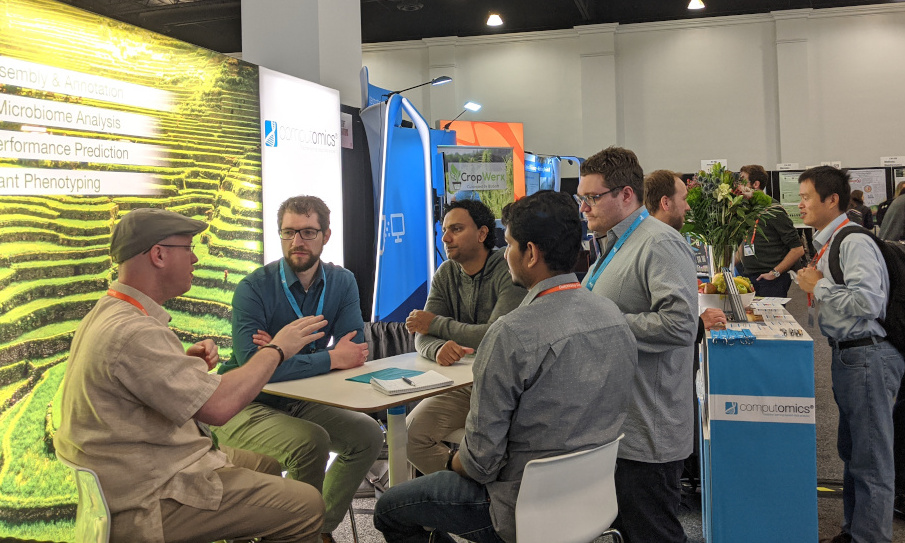Germany
March 2, 2020

The Plant and Animal Genome Conference is something we look forward to every year. Not only is it one of the world's premier events in breeding and genomics, but it's our chance to reconnect with all of our US-based west coast contacts and attend amazing events such as this year's UC Davis Innovators Showcase.
Then PAG was hit full force. We had fun, we learned a lot, and we made some great connections. The highlight and take away, however, was that data and data analysis are the stand-out trends for the new decade.

The first part: Data
We are in the business in analyzing data, not generating it, so we are always fascinated by new ways that breeders and researchers are capturing data.
What stood out was the amount and quality of companies offering genotyping and phenotyping platforms. Whether you want someone to crawl through your field, fly through your skies, or mount pods in your greenhouse, there's a phenotyping company for that! What's great about a lot of phenotyping platforms and genotyping/sequencing providers is you can customize how much data you want to be collected and which of the SNPs or phenotype measurements will be useful for you.
Initially, that may seem like an overwhelming task, but partnering with a company like Computomics will allow you to apply our statistical and machine learning methods to understand which of the phenotype variables or genotyping markers will actually lead to predictive gains and how often they need to be collected. That can often save a lot down the road when you consider the size of information some of these platforms are generating. Although these advances are garnering a lot of well-deserved excitement, the worst thing that can happen is that all that data goes unanalyzed. Perhaps worse yet would be to analyze it, but not generate any valuable decision-making power from it. That brings us to part two:
Part two: Data Analysis
There were a few awe-worthy data analysis moments during PAG. Some came from large companies presenting their staggering pipeline capabilities. They almost deserve awards. For others, collaboration was driving their innovation. We saw a lot of companies partnering with other changemakers who complement their strengths.
Notable were international consortia like FAANG with a focus on functional annotation of animal genomes and of course, the Bill and Melinda Gates Foundation which has recently doubled down on their focus for driving sustainability and agricultural development with the launch of the Gates Ag One Initiative.
We are proud to be part of a collaboration with IRRI which is also partially funded by the Gates Foundation and we believe that the kind of support they bring is invaluable to the uptake of global change. We believe in partnership as a way to drive progress. We have seen the impact we can make for our clients and when we bring the rigor of statistical analysis and machine learning capabilities to their data. Our pipelines coupled to their historical data, to environmental data, to all the data they are currently collecting just skyrocket the sort of insight they have when making decisions. We believe collaboration is the only way to meet the needs of increased data quantity and when speaking about collaboration, another point to applaud is the increase in open-source collaboration.
There is a push that even proprietary algorithms and pipelines are built on open source code which would ultimately still contribute to progress for everyone. We have something in the works which is doing that just. We look forward to releasing it very soon! Stay tuned.
We truly believe that some of the things showcased at PAG will, if implemented correctly, change the course of history. On a lighter note, if you see Steve with his amazing Hawaiian printed t-shirts, ask him where he gets them made. He's eager to share.